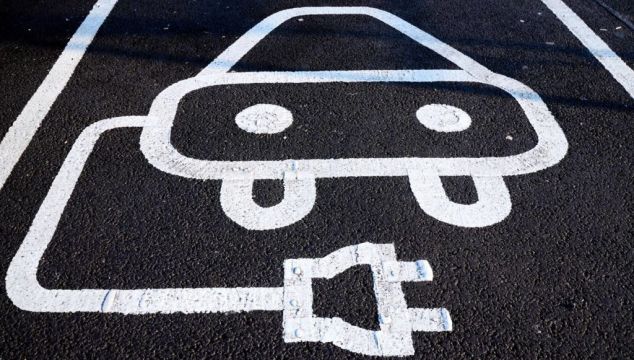Electric vehicle owners are facing a major price increase from the ESB, which is putting up the cost of charging an electric car from a public charging point from December 20th.
The rise in costs will be significant. The cheapest charging rate, that for using 22kW AC kerbside chargers, will go up from 33.6 cents per kWh now, to 56.3c per kWh. That move will especially penalise those EV drivers who currently do not have access to charging at home, and who rely on public charging points.
In theory, a Volkswagen ID.4 will average 17kWh/100km of electricity use, which means that travelling each 100km, and charging from a 22kW charger, will cost you €9.57.
To do the same 100km in an equivalent diesel-engined SUV, assuming average fuel economy of 5.5-litres per 100km — certainly do-able in real-world terms — will cost you €9.90 at €1.80 per litre. The electric car still has an advantage, but it’s shrinking fast.
Of course, according to the statistics, the majority of EV drivers do almost all of their charging at home, but Electric Ireland’s standard rate for home electricity supply now stands at 40.89c per kWh — meaning that it would cost you €28 to charge your ID.4 up from ten per cent battery to full, overnight.
To cover 100km at 17kWh/100km, charging at home at that rate will cost you €6.90, giving you a large, but perhaps not overwhelming advantage over diesel. (It’s worth pointing out that night rate charging, if your supplier offers it, will reduce that cost by quite a bit.)
It should be noted that 17kWh/100km is the on-paper electric consumption for the VW ID.4. In the real world — if it’s cold, if you’ve got the heating or the air conditioning switched on, or if you’re covering motorway mileage — your real-world electric consumption will be significantly higher.
For most EVs larger than supermini size, average all-round consumption is more like 20kWh/100kkm, meaning your 100km journey will cost you €11.26 if charging from a 22kW charger, or €8.10 if charging at home.
Rapid charging
If you want to use the ESB’s rapid public chargers, the news is just as bad. The cost of charging from a 50kW charger (which can only barely be described as ‘fast’ these days) is going up from 39.4c per kWh to 64.7c per kWh. For the very fast 150kW and 350kW chargers, the cost per kWh is going up from 42.3c to 68.2c.
You can reduce those costs by taking out a monthly subscription with ESB, which costs €4.79 per month. This brings down the per kWh cost to 50.9c at a 22kW charger; 58.6c at a 50kW charger; and 61.7c at a 150kW or 350kW charger — useful reductions, but still pricier than the cost of using an Ionity 350kW rapid charger.
With a monthly subscription, Ionity now offers by far the best fast-charging price, of 34c per kWh, although the cost of a subscription is higher than ESB’s — €17.99 per month.
If you’re on a company car fleet deal with ESB e-Cars, then your charging costs will rise to 48.4c per kWh at 22kW chargers; 55.7c at 50kW chargers; and 58.6c for 150kW and above.
In a statement, the ESB said: “We have done our very best to maintain prices by absorbing the continued increases in the wholesale energy market over the past few months.
"Unfortunately, sustained higher wholesale energy costs throughout Europe means that we continue to experience a very substantial increase in the cost of wholesale electricity, which we must reluctantly pass onto our customers. We are determined to continue offering the best value we can for customers and will keep our prices under constant review in the coming months.”







